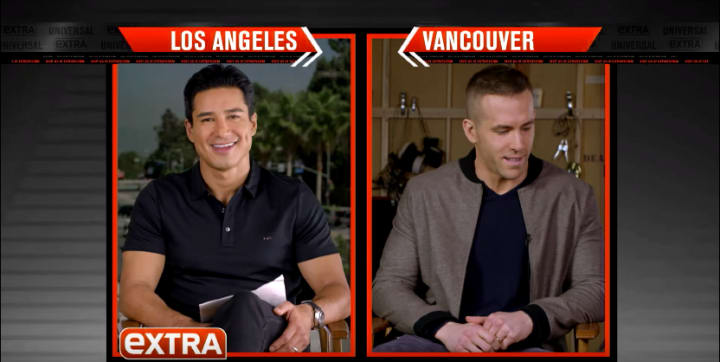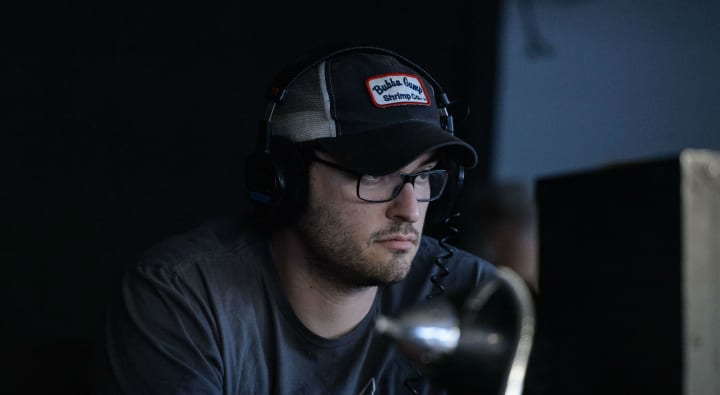Do You Remember This Shocking Superhero Conflict at 20th Century Fox?
A Behind the Scenes Look at the Internal Superhero Conflict at 20th Century Fox During the Production of Both 'Fantastic Four' (2015) and 'Deadpool' (2016)

As consumers; Spectacle, Summer Blockbusters, and Cinematic Universes are all the rage in modern society. One has to only look at Universal Studios as an example, the studio had a fantastic 2015, breaking the industry record for the highest grossing worldwide box office. Juggernaut films such as Minions (2015), Furious 7 (2015) and Jurassic World (2015) helped the studio accumulate around $5.53 billion in global box office (Busch, 2015). Disney similarly prospered; Star Wars: The Force Awakens (2015) became the second highest grossing film of all time (without adjustment to inflation). 20th Century Fox, however, suffered a difficult year, franchise films such as Night at the Museum: Secret of the Tomb (2015) and Maze Runner: The Scorch Trials (2015) massively underperformed.
Despite their box office returns, stories of their production do not live in infamy; the production of Fantastic Four (2015), however, does. Releasing on August 7th, 2015 the film (which already had a horrible marketing campaign behind it) was critically destroyed, the internet tore the film apart which led to an unsuccessful run at the box office. The film's bad reception became mainstream news which led to multiple firings, a cancellation of a franchise, and a possible end to a young director’s career. During this time, however, 20th Century Fox also had another superhero production in the works: Deadpool (2016). Releasing February 12th, 2016 with a budget less than half the size of Fantastic Four, Deadpool became a worldwide phenomenon earning around $760.3 Million. Now taking into consideration that both films were planned to crossover in future film installments, how exactly did 20th Century Fox destroy one franchise and create another?
It’s hard to say when conversations first started at 20th Century Fox about a possible reboot to The Fantastic Four, it is possible that executives at Fox could have started wanting to reboot after seeing the negative attention the last attempt of the franchise saw: Fantastic Four: Rise of the Silver Surfer (2007). However, the first piece of big news in terms of validating that the reboot was happening was released in a public statement from 20th Century Fox in 2012.
Hiring Josh Trank for 'Fantastic Four'...it could just not be more different than the first 'Fantastic Four' movie from what I've seen so far. Even just as a fan, I'm very, very excited by the level of talent they have on the director's side of things.
Immediately at this point, Fox had started its marketing campaign. At the time of this public statement, John Trank was an extremely hot director in Hollywood, he was coming off Chronicle (2012) which was a surprise critical success, not to mention the recognition it received from audiences. Chronicle was able to beat The Woman in Black (2012) in opening weekend box office which was a major accomplishment at the time, as Daniel Radcliffe was starring for the first time in a film outside of the Harry Potter franchise (IMDb, 2016). But much to of Fox’s surprise, starting from the first statement fans were against a reboot.
As much as I like and respect the 'Fantastic' Four in the MARVEL continuity, sometimes I feel like they might be too cheesy to be adapted to the big screen.—A comment from a fan on an online comic book forum stating their displeasure of seeing 'The Fantastic Four' in cinemas again. (Julian, 2012)
Fantastic Four wasn’t the only superhero project at Fox that fans were not happy about. Fox was still recovering from the negative reaction to X-Men Origins: Wolverine (2009), one of the major complaints revolved around the characterisation of Ryan Reynolds’ Deadpool. Deadpool often known for his wise-cracking persona was altered, Fox decided that this adaptation of Deadpool should have his mouth sewn shut. Fans were understandably annoyed and began demanding a faithful adaptation of their beloved anti-hero. Reynolds’ began to garner support to replay the role after announcing he was a fan of the character and he was too unhappy with the adaptation of Deadpool presented in X-Men Origins: Wolverine. Some CGI test footage of Deadpool ‘leaked’ online in July 2012—the footage received millions of views as it quickly made it around the web. The footage was extremely well received and at this point fans demanded that a Deadpool film be made, if the test footage was anything to go by. Reynolds has since hinted that the footage was leaked on purpose by someone who was extremely involved in the early production of the film (The Tonight Show Starring Jimmy Fallon, 2016).
This was exceedingly important to the early interest Deadpool began to receive. The footage (if leaked on purpose) could be seen as an early marketing technique as immediately the film was pushing in front of Fantastic Four, however, consumer attention and the production had yet to begin.
Fantastic Four began shooting on May 5th, 2014, and a handful of onset and offset drama meant more negativity became associated with Fantastic Four. Although none of the incidents have been chronologically specified, the events have been however confirmed by a variety of sources. Online film website CinemaBlend reported that director Josh Trank and Mr. Fantastic actor Miles Teller had a fight while onset, “…He ended up almost fighting Teller, who has a reputation for sarcasm and recalcitrance while working. At one point, the conflict nearly became physical, with Trank and Teller chest to chest, daring each other to throw the first punch. Neither did” (Mcknight, CinemaBlend, 2015). We live in such a corporatized world meaning situations such as these are extremely damaging to a studio's public relations. Negative PR in the movie industry can mean that a studios name recognition alone can come reason for loss at the box office.

Ryan Reynolds being interviewed by American host Mario Lopez for ExtraTV.
20th Century Fox didn’t shy away from marketing Deadpool early. As soon as shooting commenced on March 23 2015, Deadpool was becoming a highly anticipated release through its clever use of early marketing techniques. On April 1st, 2015 Ryan Reynolds took part in a comedy interview sketch with American host Mario Lopez (extratv, 2015). The video revealed that the film would, in fact, be rated R, this too was part of the marketing of Deadpool; fans had pleaded for a rated R version of the superhero for years. Similarly, a successful comic-con panel took place in July from San Diego, the cast spoke enthusiastically about the moments during the film's production, the cast also continued to please the fans by constantly reassuring fans this would be the adaptation they wanted to see. Many of these stories were then reported on by a series of highly reputable film sites, meaning that consumers outside of Deadpool’s core fan base were beginning to heighten in excitement for the movie.
By Fox's Deadpool team listening directly to their consumers, it meant that Deadpool once again moved ahead of Fantastic Four in terms of audience anticipation. However, despite more negative attention due to casting controversies and disputes regarding Josh Trank’s behind the camera behaviour, the film had still yet to garner any significant support.
Similarly, Trank’s dream directing ‘gig at Disney and LucasFilm was cancelled in May 2015—Trank was supposed to direct a Star Wars spin-off for the company after completing Fantastic Four. As Trank’s firing became mainstream news more stories came forth, stating that Josh Trank and 20th Century Fox were clashing over the direction of the Fantastic Four in the post-production process. Film Journalist John Campea (2015) referred to Trank when he said, “At some point, they hijacked the editing bay from him. To the point that the editing of the film was done without him”. Interestingly, this harkens back to a previous example in which Deadpool saw an unsuccessful adaptation in X-Men Origins: Wolverine (2009), many have claimed this was due to Fox executives interfering with the director’s direction. So when similar reports where surfacing with Fantastic Four fans began to feel they were justified in fearing a reboot of the superhero team.
Fantastic Four was in turmoil and had yet to even present a significant marketing campaign. Early online trailers were badly received and similarly failed to gain any real recognition as a major blockbuster event that audiences must attend in the summer of 2015. As we moved towards the release date of Fantastic Four the marketing campaign failed to capture momentum so Fox decided in an act of desperation to release a trailer for the film featuring Ryan Reynolds himself as Deadpool; the last-ditch attempt to create excitement for Fantastic Four wasn’t particularly successful as many news outlets ran with the news that Deadpool had a cameo in the new Fantastic Four trailer. This meant when the consumers viewed the trailer, they walked away speaking about Deadpool and less so about the actual film that was being marketed specifically.
A final ‘red warning’ from Fantastic Four confirmed to audiences that the films production problems and less than stellar marketing campaign would be a reflection of the final film itself. It was reported by a senior editor of New York Magazine that the films review embargo would not be lifted until a day before the release of the movie (Smith, 2015). In the film industry, this is usually a huge signal that the studio has a lack of confidence in their movie, the idea behind not lifting the embargo is predominantly to stop bad word of mouth spreading.
Ultimately, this would not save Fantastic Four, releasing August 7th, 2015 in the United States. The film was critically panned and opening weekend box office wouldn't save the superhero movie either, earning only $25,685,737 in its first weekend. With a budget of $120 million, it was clear that consumers were aware of the onset of disasters and the bad reputation the film had, and in return stayed away from the film on the big screen, instead choosing to revisit Mission: Impossible—Rogue Nation (2015) which at the time was in its second weekend atop the US box office. Interestingly too, Rogue Nation had been praised for its successful marketing campaign.

Fantastic Four (2015) Director Josh Trank
At this point in time, more reports began to leak in terms of what exactly happened during the production of Fantastic Four. And as further stories made their way online the director finally decided to comment himself via Twitter;
“A year ago I had a fantastic version of this. And it would’ve received great review(s). You’ll probably never see it. That’s reality though”
Professionally this was a completely foolish move by Trank, he was essentially revealing to audiences what they had already expected. Nevertheless, commenting on this so early in the films box office run meant that Trank was simultaneously ruining any chance Fantastic Four might have had at regaining some momentum at the box office and similarly, juxtaposing any work the marketing campaign at Fox might have been doing, to try to boost the films PR. A fellow director, the late Jon Schneep, came to the aid of Trank stating that a friend of his had worked on the visual effects of the film and has since quit the industry because of the experience. At this point, it becomes clear that Fox executives had some sort of involvement on the film that wasn’t in coalition to the direction of the team originally working on the film.
Consumers quickly began to lose trust in 20th Century Fox, many started to believe that Deadpool would also ‘bomb’ but fans were quickly turned around with a handful of entertaining trailers which seemed to resemble the character as the fans wanted. As we moved closer towards a February 12th, 2016 release date the marketing campaign quickly defined itself as one of the greatest in cinema history. From clever billboards to testicular cancer awareness videos, the campaign was extremely diverse and unlike anything we had ever seen. Since the release of Deadpool, it has become the second highest grossing R-rated film of all time. Deadpool also able to secure a sequel on a date that was originally saved for a Fantastic Four sequel.
Ultimately, here we have a story of three parts; before the projects were even announced, the consumers quickly made their thoughts clear to Fox. There was interest for Deadpool and a lack of that same interest for Fantastic Four. Perhaps if the studio had listened to the initial comments made by their potential consumers and cancelled plans to go ahead with Fantastic Four then they might not have had one of the most infamous PR disasters in recent memory.
Once again, these films ran completely differently when it came to production, one direction saw fights, studio interferences, and last-minute reshoots. Whereas the other ran confidently as a collaboration between a talented crew. Similarly, Fox seemed confident when marketing Deadpool but seemed to have a lack of which when it came to creating any sort of excitement for Fantastic Four. Finally, it is important that studios and filmmakers realise that what happens behind the scenes does ultimately work in conjunction to the official marketing campaign; meaning the behind the scenes production stories can destroy or create a film, and possibly a franchise.
About the Creator
Connor Luke Simpson
amateur filmmaker - will post my ramblings about film and television here from time to time. find me at @RealConnorLuke on Instagram, Facebook and Twitter.






Comments
There are no comments for this story
Be the first to respond and start the conversation.